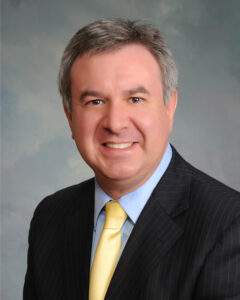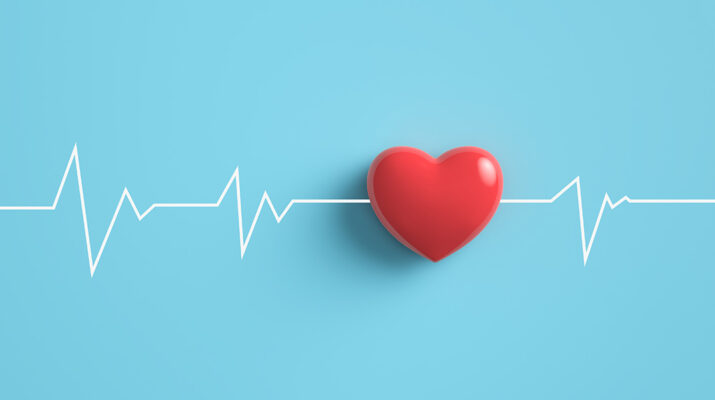By Barbara Pierce

Strokes are the fifth largest killer of Americans and a leading cause of disability, according to physician Scott Brehaut, medical director of The Stroke Center at MVHS and expert spokesperson for the American Heart Association.
This is scary. It’s scary because many of the risks for having a stroke are silent — like high cholesterol and high blood pressure. You’re just fine one minute and the next minute you’re in a hospital bed. (That is, if you’ve survived.)
Signs of a stroke
It’s important to recognize the symptoms if you or someone you know could have a stroke, advised Brehaut.
“The quicker you get treatment, the better your chances of having any effects from the stroke. We say, ‘time is brain,’ because losing time can mean loss of brain function.”
Use the abbreviation ‘FAST’ to know the signs and symptoms of stroke he said:
F — Face Drooping
A — Arm Weakness
S — Slurred Speech
T — Time to call 911
Two other indicators that can be a sign of stroke include balance and eyes. If your balance or vision is off, it could be a sign of stroke.
Another reason to get treatment quickly is that Identifying the cause of a stroke or mini-stroke within 48 hours could help pinpoint what is needed to prevent additional strokes. Having a first stroke or a small stroke (called a transient ischemic attack or TIA) increases a person’s chances of having additional strokes.
Risk factors you can’t control
Putting you at higher risk for a stroke includes increasing age; the older you are, the greater your stroke risk. Women have a higher risk than men. African Americans and Hispanics are at high risk. If you’ve had a prior stroke, your risk increases. Those whose close relatives have had a stroke are a higher risk.
“One thing you can’t modify is your genetics, so talk with your family about health,” recommended Brehaut. “Did an elder in the family have a stroke? Heart attack? Do other family members have high blood pressure? That could put you in a higher risk category. Knowledge is power and there are some things you can modify.”
If you’ve had a stroke, medication can lower your risk of having another stroke. Antiplatelet drugs help prevent platelets from sticking together and therefore prevent blood clots from forming. The most commonly used antiplatelet drug is aspirin. Blooding-thinning medicines, known as anticoagulants, reduce blood clotting. Your health care professional will work with you on medications to reduce your risk of stroke.
Risk factors you can control
The good news is that 80% of strokes can be prevented, according to the AHA.
“Some strokes can be prevented,” said Brehaut. “Following the American Heart Association/American Stroke Association’s Life’s Essential 8 can help prevent stroke.”
• Eat better: Include whole foods, fruits, vegetables, lean protein, nuts, seeds and cook with non-tropical oils like olive oil and canola oil.
• Be more active: Get 150 minutes of moderate or 75 minutes of vigorous physical activity per week. 150 minutes works out to about 20 minutes per day. Kids should have 60 minutes of exercise every day, which can include play and structured activities.
• Quit tobacco: Use of inhaled nicotine delivery products, which includes traditional cigarettes, e-cigarettes and vaping, is the leading cause of preventable death in the U.S., including about one-third of all deaths from heart disease.
• Get healthy sleep: Most adults need seven to nine hours of sleep each night. Adequate sleep promotes healing, improves brain function and reduces the risk for chronic diseases.
• Manage weight: Achieving and maintaining a healthy weight has many benefits. Body Mass Index (BMI) is a useful gauge to see if your weight is in a healthy range. Optimal BMI is 25.
Control cholesterol: High levels of non-HDL, or “bad” cholesterol, can lead to heart disease. Work with your health care provider to achieve the optimal number.
• Manage blood sugar: Most of the food we eat turns to blood sugar that our bodies use as energy. High levels of blood sugar can damage your heart, eyes, kidneys and nerves.
• Manage your blood pressure: High blood pressure is known as the “silent killer” for good reason and can put you at risk.
Don’t ignore regular check-ups. “It’s critical that you have an annual check-up to monitor any changes to your health,” Brehaut said. “Things like elevated blood pressure or cholesterol are often noticed at an annual check-up. Knowledge is power and you can take steps to fight stroke after that.”
“If you think things don’t feel right, they might not be,” he added. “Check in with your doctor — don’t die of doubt.”

